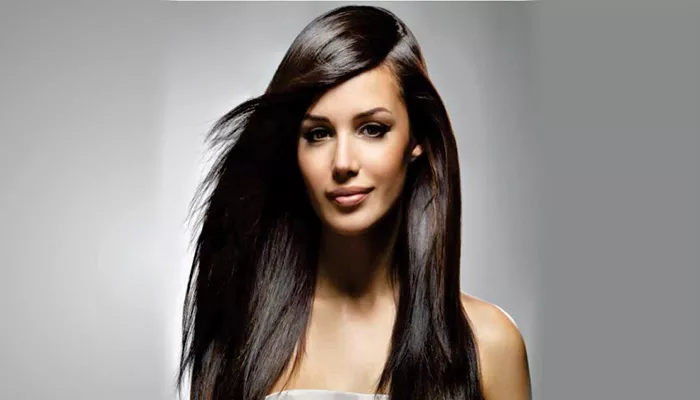Black hair is unique. It has distinct characteristics. It is often curly or coiled. It can be prone to dryness. Understanding how to stimulate growth is important. Proper care is essential. This article explores various methods. It provides tips for promoting black hair growth.
Understanding Hair Growth
Hair growth occurs in cycles. There are three main phases: anagen, catagen, and telogen. The anagen phase is the growth phase. It lasts two to six years. The catagen phase is a transitional phase. It lasts a few weeks. The telogen phase is the resting phase. It lasts about three months. After this, the cycle repeats.
Factors Affecting Black Hair Growth
Genetics play a role
They determine hair type and growth rate. Some people naturally grow hair faster. Others may have slower growth. Genetics can also influence hair thickness.
Nutrition is crucial
A balanced diet supports hair health. Vitamins and minerals are essential. Iron, zinc, and biotin are important. Protein is necessary for hair structure. Omega-3 fatty acids promote scalp health.
Hormones affect hair growth
Hormonal imbalances can lead to hair loss. Conditions like polycystic ovary syndrome (PCOS) can impact hair. Thyroid issues can also affect growth.
Scalp health is important
A healthy scalp promotes hair growth. Issues like dandruff or infections can hinder growth. Keeping the scalp clean and moisturized is key.
Hair care practices matter
Over-processing and heat can damage hair. Protective styling can help. Avoiding harsh chemicals is important.
Stimulating Black Hair Growth
Diet and Nutrition
Include fruits, vegetables, and whole grains. Protein is essential. Foods like chicken, fish, and beans are good sources. Iron-rich foods like spinach and lentils are beneficial. Zinc supports hair health. Nuts and seeds are good sources. Biotin is important for hair growth. Eggs and nuts contain biotin. Omega-3 fatty acids promote scalp health. Fish like salmon and flaxseeds are rich in omega-3s.
Stay hydrated
Drink plenty of water. Hydration supports overall health. It also benefits hair and scalp.
Consider supplements
Sometimes diet alone is not enough. Supplements can help. Biotin, iron, and zinc supplements are popular. Always consult a healthcare provider before starting supplements.
Hair Care Practices
Avoid harsh chemicals
Chemical treatments can damage hair. Relaxers and perms can weaken hair. Opt for gentler alternatives.
Use heat sparingly
Heat styling can damage hair. If using heat, apply a heat protectant. Keep the temperature low. Limit the frequency of heat styling.
Practice protective styling
Styles like braids and twists protect hair. They reduce manipulation and breakage. Avoid styles that are too tight. They can cause traction alopecia.
Moisturize regularly
Black hair is prone to dryness. Use moisturizing products. Oils like coconut and olive oil are beneficial. Shea butter is also effective. Deep condition regularly. It helps maintain moisture balance.
Maintain a clean scalp
Wash hair regularly. Use a gentle shampoo. Avoid sulfates. They can strip natural oils. Condition after every wash. It helps keep hair soft and manageable.
Scalp Care
Massage the scalp
Scalp massages stimulate blood flow. They promote hair growth. Use oils like coconut or castor oil. Massage for a few minutes daily.
Keep the scalp clean
Remove product buildup. Use a clarifying shampoo occasionally. It helps maintain scalp health.
Treat scalp issues promptly
Conditions like dandruff can hinder growth. Use appropriate treatments. Consult a dermatologist if necessary.
SEE ALSO: Why Is My Hair Frizzy on the Ends?
Protecting Hair
Use satin or silk
Cotton can cause friction. It leads to breakage. Use satin or silk pillowcases. Wear a satin or silk scarf at night.
Be gentle
Avoid rough handling. Use a wide-tooth comb. Detangle hair gently. Start from the ends and work up.
Trim regularly
Regular trims prevent split ends. It keeps hair healthy. Trim every 6-8 weeks.
Hair Growth Products
Use natural oils
Oils like castor oil promote growth. Apply to the scalp. Massage gently.
Consider hair growth serums
There are many products available. Look for ingredients like minoxidil. Follow the instructions carefully.
DIY Hair Treatments
Aloe vera treatment
Aloe vera soothes the scalp. It promotes hair growth. Apply fresh aloe vera gel. Leave for 30 minutes. Rinse with lukewarm water.
Coconut milk mask
Coconut milk nourishes hair. It provides essential nutrients. Apply coconut milk to the scalp. Leave for 20 minutes. Rinse with cool water.
Egg mask
Eggs are rich in protein. They strengthen hair. Mix an egg with olive oil. Apply to the scalp. Leave for 30 minutes. Rinse with cool water.
Onion juice treatment
Onion juice stimulates hair growth. It increases blood circulation. Blend an onion. Strain the juice. Apply to the scalp. Leave for 15 minutes. Rinse with a mild shampoo.
Challenges in Black Hair Growth
Managing dryness
Black hair is naturally dry. Moisturizing is essential. Use hydrating products regularly.
Preventing breakage
Hair is fragile. Be gentle. Avoid excessive manipulation. Protective styling helps.
Dealing with shrinkage
Black hair shrinks when dry. Embrace shrinkage. It is a natural characteristic. Stretching techniques can help. Try braid-outs or twist-outs.
Conclusion
Black hair requires special care. Understanding its unique characteristics is important. Proper nutrition supports growth. Healthy hair care practices are essential. Regular moisturizing and gentle handling are key. Scalp health should not be overlooked. Natural treatments can be beneficial. Embrace your hair’s natural beauty. With the right care, you can promote healthy growth.

